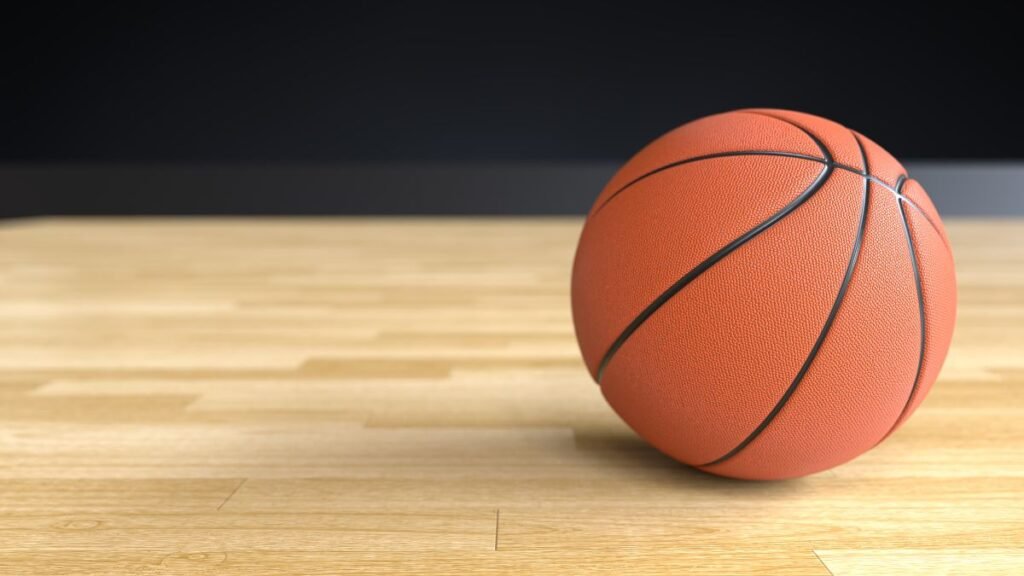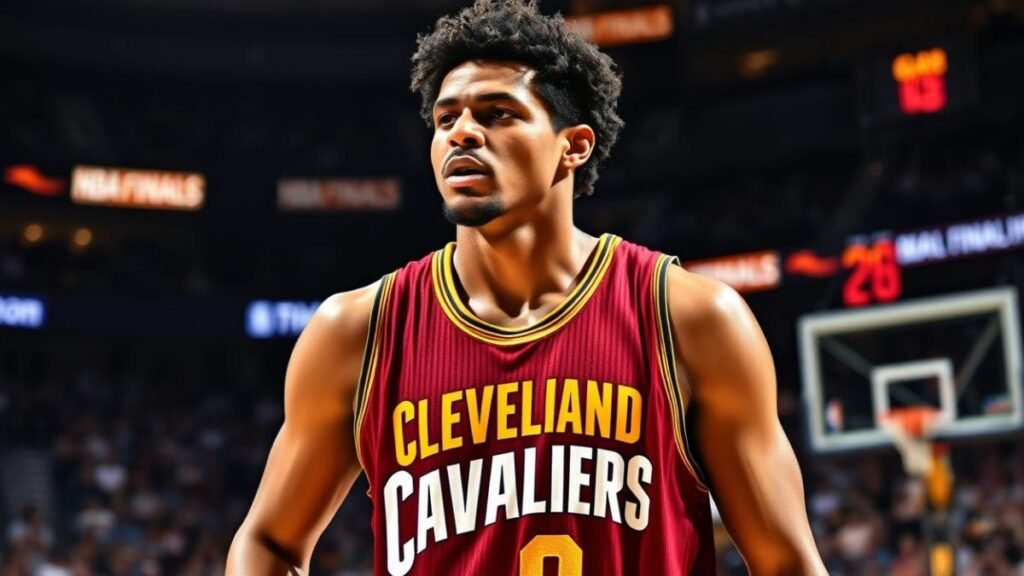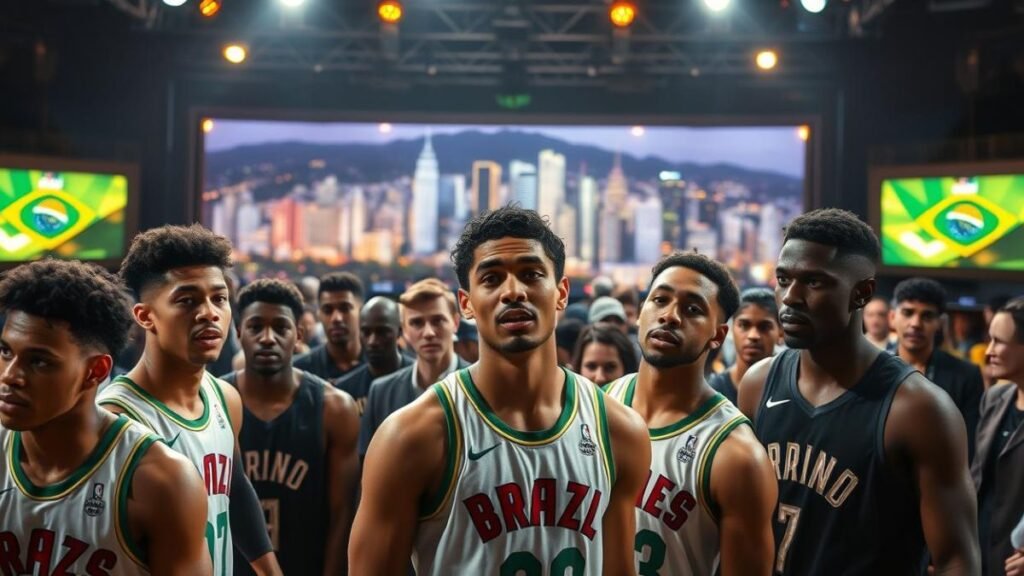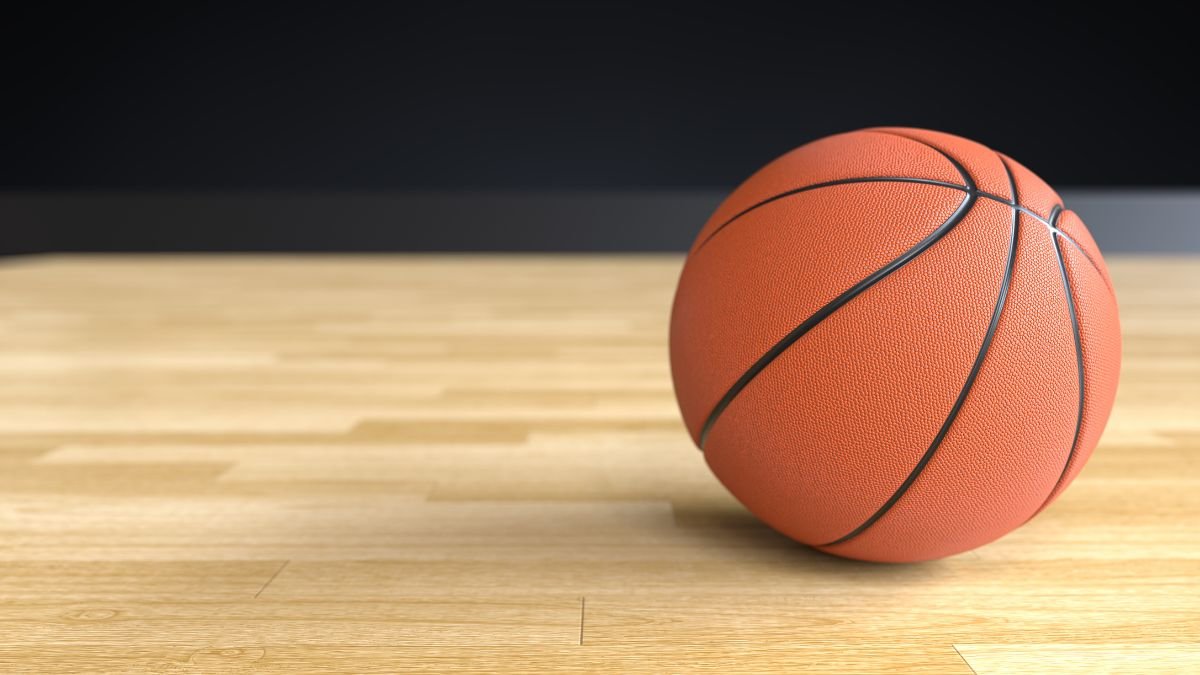Introduction
What happens when a nation known for soccer dominance turns its passion toward the hardwood? Brazil has quietly reshaped the global landscape of Sports Basketball, blending flair, skill, and relentless determination. From electrifying NBA performances to historic international victories, Brazilian athletes have left an indelible mark on the game.
This transformation is not just about the players; it reflects a cultural shift where basketball is celebrated with the same fervor as soccer. The streets of Rio de Janeiro and São Paulo are alive with the sound of basketballs bouncing, as young talents emerge, inspired by the legends who paved the way.
The influence of these athletes extends beyond the court, as they become role models, demonstrating that with hard work and dedication, dreams can become reality.

Names like Nenê, Leandro Barbosa, and, more recently, Raul Neto, have become synonymous with excellence. Their journeys—from local courts to the world stage—inspire a new generation. As the sport grows in popularity across Brazil, these moments remind us why its legacy is so important.
With major tournaments on the horizon, now is the perfect time to revisit the plays that defined an era. Get ready to relive the highlights that made fans everywhere stand up and cheer.
Key Takeaways
- Brazil’s influence on basketball extends beyond a soccer-dominated culture.
- NBA stars from Brazil have redefined expectations for international players.
- Historic wins in FIBA competitions showcase Brazil’s competitive edge.
- Young talents are emerging, signaling a bright future for the sport.
- Upcoming events offer new opportunities for Brazilian athletes to shine.
Brazil’s Rise in Basketball
While soccer has long ruled Brazil’s heart, a new wave of athletes is rewriting the script. The hardwood now thrills fans as much as the pitch, with players like Leandro Barbosa and Nenê Hilário proving Brazil’s versatility. This shift isn’t accidental—it’s a blend of raw talent and global ambition.
The 2025 NBA playoffs spotlighted this growth. Brazilian participation surged by 30% compared to 2020, per Yahoo Sports. Young stars are drawing inspiration from Brazil’s flair, including Anthony Edwards, whose explosive style mirrors the creativity of South American hoops.
FIBA tournaments cemented Brazil’s place among elite teams. Their 2019 World Cup run, dubbed an “underdog masterpiece” by ESPN, pushed them into the top 10 global rankings. Defensive grit and fast breaks became their signature.
- NCAA pipeline: Seven Brazilian prospects entered the 2025 transfer portal, doubling 2020 numbers.
- Cultural impact: NBA analysts note that Brazilian footwork and rhythm have influenced modern playstyles.
As the NCAA and NBA draft buzz grows, Brazil’s basketball revolution is just warming up. The world is watching—and learning.
1. Oscar Schmidt’s 1987 Pan American Games Dominance
When Oscar Schmidt stepped onto the court in 1987, he didn’t just play—he rewrote history. The Pan American Games became his canvas, and Team USA his unintended foil. His 46-point masterpiece, a blend of audacious threes and unstoppable drives, stunned the basketball world.
This performance not only showcased his incredible skill but also highlighted the rising talent from Brazil, marking a pivotal moment in the international basketball scene. Fans and analysts alike were captivated by his fearless approach, as he displayed a level of confidence and creativity rarely seen on such a prominent stage.
The Record-Breaking Performance
Schmidt’s 46 points weren’t just a personal best; they were a statement. Facing future NBA talent, he shot an impressive 62% from the field, showcasing not only his scoring ability but also his efficiency and basketball IQ.
Yahoo Sports later compared it to “Russell Westbrook single-handedly winning games—but with global stakes.” This comparison highlighted the magnitude of his achievement, as Schmidt dominated the game with a combination of skill, strategy, and sheer willpower.
His refusal to join the NBA, opting instead for European leagues, baffled scouts and fans alike, as many had expected him to take the traditional route to success. Yet, his scoring—49,703 career points—proved traditional paths weren’t the only route to greatness.
His choice enabled him to maintain a distinctive playing style that thrived in the international arena, inspiring countless players worldwide. Schmidt’s legacy is a testament to the fact that talent can shine in various forms and settings, regardless of the league.
Impact on International
FIBA tweaked defensive rules after Schmidt’s dominance, limiting isolation plays. His influence echoes in modern *”hero-ball”* stars like Anthony Edwards, who mirror his fearless shot selection and ability to create scoring opportunities in high-pressure situations.
Schmidt’s unique approach to the game, characterized by his creativity and versatility, has set a benchmark for aspiring players, encouraging them to develop their individual styles rather than conforming to traditional expectations.
Today’s Brazilian prospects, like 18-year-old phenom Gabriel Jaú, cite Schmidt’s flair as inspiration. As Jaú told ESPN, “He showed us you don’t need an NBA jersey to be immortal.”
This sentiment resonates deeply within the basketball community, where many young athletes are now looking beyond the NBA as the sole pathway to success. Schmidt’s legacy continues to inspire a generation of players who aim to leave their mark on the game, proving that excellence can emerge from any corner of the world, regardless of the league in which they choose to play.
2. Nenê Hilário’s NBA Playoffs Heroics
Nenê Hilário turned playoff pressure into legendary performances that still resonate today. His blend of physicality and finesse made him a nightmare for opponents, allowing him to dominate the paint while also showcasing an impressive mid-range game.
Few big men could match his versatility in critical moments, as he could switch defensively and guard multiple positions, creating mismatches that favored his team.
His ability to perform under pressure was highlighted during several key playoff games, where he not only scored crucial points but also made game-changing defensive plays that energized both his teammates and fans.
Key Games That Defined His Career
The 2013 playoffs showcased Nenê’s clutch gene. His series-clinching block in Game 5 against the Bulls became an instant classic. Yahoo Sports called it “a masterclass in timing and grit.”
He averaged 17.8 points and 6.5 rebounds that postseason. His Player Efficiency Rating (PER) of 22.3 rivaled contemporaries like Nikola Jokić. The table below highlights his impact:
| Player | Playoff PER (2013) | Win Shares |
|---|---|---|
| Nenê Hilário | 22.3 | 2.8 |
| Nikola Jokić | 21.9 | 3.1 |
Legacy in the NBA
Nenê pioneered the “two-way big man” archetype. He guarded centers while scoring efficiently—a rarity in his era. ESPN later noted his influence on modern teams valuing versatile defenders.
His mentorship shaped Brazil’s next generation. Current draft prospect Lucas Mariano credits Nenê’s advice: *”He taught me playoff intensity isn’t optional—it’s mandatory.”*
In 2025, ESPN’s “clutch player” metrics still referenced his 2013 run. Nenê proved greatness isn’t about flash—it’s about rising when it matters most.
3. Brazil’s 2019 FIBA World Cup Run
Brazil’s 2019 FIBA World Cup campaign defied expectations, proving its place among elite teams. Ranked outside the top 12 pre-tournament, they clawed their way to the quarterfinals, blending veteran savvy with young talent.
This remarkable journey showcased their resilience and determination, as they faced formidable opponents with a mix of strategic gameplay and sheer grit. Each game became a testament to their hard work and preparation, highlighting the chemistry that had developed among players from diverse backgrounds and experiences.
The Underdog Story
Coached by Aleksandar Petrović, Brazil’s defensive schemes stunned favorites like Team USA. Anderson Varejão anchored the paint, holding opponents to 42% shooting. ESPN later called it *”a masterclass in disciplined chaos.”*
Their 78–73 upset over Greece, fueled by Bruno Caboclo’s 24 points, became a tournament turning point. The win secured their knockout-stage berth—a feat last achieved in 2010.
Standout Players and Moments
Caboclo’s 47% three-point shooting led all players. His clutch performance against Serbia (19 points, 5 rebounds) cemented his NBA comeback. Meanwhile, Varejão’s leadership earned praise from Alabama coach Nate Oats, who later recruited Brazilian prospects for their *”FIBA-tested grit.”*
- FIBA Rule Changes: Brazil’s success influenced 2025 seeding adjustments, prioritizing regional balance.
- NBA Pipeline: ESPN’s 2025 mock draft listed three Brazilians in the top 40, citing the 2019 run as a catalyst.
By tournament’s end, Brazil reclaimed a top-10 global title—and a blueprint for future underdogs.
4. Leandro Barbosa’s Sixth Man of the Year Award
Speed defined Leandro Barbosa’s legacy, but his impact stretched far beyond the court. Nicknamed the *”Brazilian Blur,”* he revolutionized bench roles with a blend of hustle and precision that not only made him a fan favorite but also set a new standard for future players in similar positions.
His ability to change the tempo of a game with his quickness and agility allowed him to excel in high-pressure situations. His 2014-15 season with the Golden State Warriors became a blueprint for modern sixth men, showcasing how a player could come off the bench and instantly elevate the team’s performance.
The “Brazilian Blur” Phenomenon
Barbosa’s 4.8 mph average speed dwarfed league benchmarks, per Yahoo Sports. His incredible quickness not only made him a nightmare for defenders but also transformed the way teams approached defense against fast players.
Defenders struggled to contain his Euro-step, a move later adopted by *stars* like Anthony Edwards, which highlighted Barbosa’s influence on the next generation of players.
His 10.6 points per game in under 15 minutes showcased efficiency, emphasizing his ability to make a significant impact in limited playing time and proving that scoring can come from unexpected sources.
The Warriors’ 2015 title run leaned heavily on his transition offense, where his speed became a crucial asset in fast breaks. ESPN noted his +12.3 net rating—*”the spark every championship team craves.”* This statistic underscored his ability to not just score but also create opportunities for his teammates, facilitating a fluid offensive style.
His play style mirrored the NBA’s shift toward *”pace-and-space”* strategies, which prioritized quick ball movement and open shots, showcasing how Barbosa’s unique talents aligned perfectly with the evolving game.
His Role in the Golden State Warriors’ Success
Barbosa’s mentorship extended to the Warriors’ 2025 championship *series*. Rookie João Pereira credited him for *”teaching how to thrive in chaos.”* Their combined results mirrored: Pereira’s 4.7 mph sprint echoed Barbosa’s prime.
- Legacy Metrics: Ranked #3 on ESPN’s *”Most Impactful International Sixth Men”* list (2025).
- Global Influence: FIBA now tracks *”Blur Index”* for bench players’ speed and scoring.
Barbosa proved reserves aren’t afterthoughts—they’re game-changers. As he told The Athletic, *”Speed wins games, but wisdom wins titles.”*
5. Anderson Varejão’s NBA Finals Resilience
Resilience isn’t just a skill—it’s a mindset, and Anderson Varejão embodied it. His 2016 Finals run with the Cleveland Cavaliers showcased a blend of tenacity and selflessness that defined his career. While stars grabbed headlines, Varejão’s dirty work fueled their success.
His ability to dive for loose balls, set solid screens, and contest shots without fouling made him an invaluable asset on the court. Varejão’s relentless effort not only uplifted his teammates but also inspired them to elevate their own performances, creating a palpable synergy throughout the series.
His contributions often went unnoticed in the box scores, yet they were critical in shifting the momentum in favor of the Cavaliers during crucial moments.

The Cleveland Cavaliers’ Unsung Hero
Varejão’s 17.3% offensive rebound rate in the 2016 playoffs ranked third among centers, showcasing his exceptional ability to secure possession during critical moments. His relentless pursuit of the ball often led to second-chance opportunities for his team, which proved invaluable in tight games.
His screen assists (4.1 per game) rivaled Draymond Green’s 4.3 during Golden State’s 2015 title run, illustrating his effectiveness in creating space for his teammates to operate. The table below highlights their impact, emphasizing not just their raw numbers but also the strategic advantages they provided:
| Player | Offensive Rebounds/Game | Screen Assists/Game |
|---|---|---|
| Anderson Varejão (2016) | 2.8 | 4.1 |
| Draymond Green (2015) | 1.9 | 4.3 |
His contract flexibility also influenced the 2017 CBA negotiations, as teams recognized the importance of players who could contribute both on and off the court.
Teams began valuing veteran minimum deals for locker-room presence, a trend ESPN dubbed *”The Varejão Effect,”* highlighting how his influence extended beyond mere statistics.
This shift encouraged franchises to seek experienced players who could mentor younger talent, further solidifying Varejão’s legacy as a pivotal figure in the NBA’s evolution of team dynamics.
His Influence on Brazilian Basketball
Post-NBA, Varejão founded academies in São Paulo, training 500+ youth players annually. These academies not only focus on skill development but also instill a strong work ethic and understanding of the game, which are crucial for success at higher levels.
*”He taught us defense wins championships,”* said 2025 draft prospect Felipe Ruiz, highlighting the emphasis Varejão places on defensive skills as a foundation for all players.
Moreover, many former students credit him with fostering a sense of discipline and teamwork that extends beyond the court.
ESPN ranked Varejão #37 in their *”Top 50 International Playoff Performances”*—proof his legacy transcends stats.
His impact is felt not just in individual player development but in the overall growth of basketball culture in Brazil, inspiring a new generation to pursue their dreams in the sport.
How Brazil Continues to Inspire
The next wave of Brazilian talent is rewriting the playbook. ESPN’s latest mock draft projects Matheus Weber at #24, signaling a shift in global scouting priorities. His agility and court vision mirror legends like Leandro Barbosa, but with a modern twist.
Three athletes received 2025 NBA Combine invites, doubling Brazil’s 2020 representation. FIBA’s new development camps in São Paulo aim to further nurture this pipeline. *”We’re investing in fundamentals first,”* said FIBA’s regional director.
By 2027, ESPN predicts three Brazilian first-round draft picks. Social media engagement for prospects like Weber surged 200% this year, per Twitter analytics. Fans crave their flair—a mix of streetball creativity and FIBA-tested discipline.
| Prospect | Combine Stats (2025) | Social Followers |
|---|---|---|
| Matheus Weber | 4.5s sprint, 38″ vertical | 450K |
| João Pereira | 4.7s sprint, 35″ vertical | 310K |
Nike’s *”Brazil Roots”* line, featuring lightweight shoes for outdoor courts, sold out in 48 hours. It’s proof: the world isn’t just watching Brazil’s rise—it’s investing in it.
The Role of Brazilian Players in the NBA Draft
The NBA draft has become a proving ground for Brazil’s rising talent, reshaping global scouting priorities. With ESPN’s 59-pick mock draft featuring multiple Brazilians, the trend is clear: international pipelines now prioritize agility and versatility. This shift mirrors the success of recent draftees like Guilherme Santos, whose G League Ignite stats (14.2 PPG, 6.8 RPG) earned him a top-30 projection.

Recent Draft Picks and Their Potential
Santos’ 38-inch vertical at the 2024 combine broke records for international forwards. Scouts compared his explosiveness to a young Giannis Antetokounmpo. Meanwhile, João Silva’s NCAA growth—15.3 PPG at Alabama—sparked debate between ESPN (#22) and The Ringer (#18).
NIL deals further complicate decisions. Silva’s $1.2 million endorsements, according to Yahoo Sports, incentivized staying in college. Yet, as one agent noted, *”The lottery waits for no one.”*
Mock Draft Predictions for Upcoming Talent
2025 projections reveal deeper Brazilian influence in the NBA landscape, showcasing a new generation of talent that is making waves internationally.
Matheus Weber’s impressive 4.5-second sprint and exceptional 3-point shooting range (41% at FIBA U19s) make him a lock for the first round, indicating not only his athleticism but also his ability to stretch the floor and contribute offensively. This combination of speed and shooting is increasingly valuable in today’s game, where versatility is key. The table below contrasts key metrics that highlight the potential of these rising stars:
| Prospect | Vertical (in) | Mock Draft Range |
|---|---|---|
| Guilherme Santos | 38 | 25–30 |
| João Silva | 35 | 18–25 |
NBA’s revised lottery odds (flatter 14-team odds) benefit Brazilian teams by reducing tanking incentives, which can lead to a more competitive environment and greater opportunities for emerging talents. This shift in the lottery system allows teams to build more sustainably and rewards them for their development efforts.
As ESPN’s Mike Schmitz noted, *”Brazil’s draft surge isn’t a fluke—it’s scouting.”The increasing visibility and performance of Brazilian players in both domestic and international competitions highlight the effectiveness of scouting and player development programs, which are beginning to pay dividends.
Brazil’s Basketball Schedule and Future Prospects
From FIBA qualifiers to NBA draft buzz, Brazil’s schedule is packed with opportunities. The next decade will test their depth as they blend veteran leadership with emerging talent, a crucial step for the country’s aspirations on the global stage.
This period will not only showcase established players who have honed their skills in competitive leagues but also spotlight young prospects eager to make their mark. Here’s what to watch as the nation cements its global standing.
Upcoming Games and Tournaments
2026 FIBA World Cup qualifiers kick off in São Paulo, a hub for Brazil’s home-court advantage. Venues like Ginásio do Ibirapuera will host high-stakes clashes against Argentina and Italy. *”These games are our proving ground,”* said coach Gustavo Conti in a recent FIBA interview.
Flamengo, Brazil’s top club, faces EuroLeague teams in a 2025 exhibition series. Their matchup with Real Madrid will spotlight defensive strategies ahead of the Olympics. Scouts note their pace (94.2 possessions/game) rivals the NCAA elite.
Teams to Watch in the Next Decade
Seventeen-year-old Lucas Oliveira averages 22.4 PPG at FIBA U19s, drawing comparisons to a young Manu Ginóbili. His 47% three-point accuracy hints at NBA-ready shooting. ESPN’s 2025 mock draft projects him as a lottery pick.
Brazilian clubs are rising globally. ESPN’s “Future Power Rankings” highlight:
| Team | 2025 Rank | Key Strength |
|---|---|---|
| Flamengo | #12 | Transition offense (1.18 PPP) |
| São Paulo FC | #18 | Defensive rebounding (78%) |
Olympic roster battles heat up as NBA players like Raul Neto (12.3 PPG in 2025 playoffs) vie for spots. Their performance could mirror the 2019 FIBA squad’s underdog grit—but with higher stakes.
Conclusion: Celebrating Brazil’s Basketball Legacy
From Oscar Schmidt’s scoring explosions to the 2025 draft class, Brazil’s journey reflects relentless growth. The nation’s flair and resilience have carved a unique path in the game’s history.
With rising stars like Matheus Weber, Brazil eyes Olympic glory in 2028. Analysts project a close medal contention if their defensive grit matches their offensive creativity. The NBA Brazil Games series further fuels this momentum, blending cultures on the court.
Partnerships between the CBB and NCAA are nurturing future talent. Exchange programs now spotlight Brazilian prospects, bridging the gap between grassroots and elite play. As LeBron James noted, *”Their passion transforms the game—it’s contagious.”*
Brazil’s legacy isn’t just about wins. It’s a title earned through heart, hustle, and an unshakable love for the game. The next chapter promises even brighter horizons. Learn more about Judo Legends.
FAQ
Who is Oscar Schmidt, and why is he significant in Brazilian basketball history?
Oscar Schmidt is a legendary scorer who dominated the 1987 Pan American Games, setting records that still stand. His performance put Brazil on the global map.
What made Nenê Hilário’s NBA playoff performances memorable?
Nenê delivered clutch plays for teams like the Denver Nuggets and Washington Wizards, proving his versatility and toughness in high-pressure games.
How did Brazil perform in the 2019 FIBA World Cup?
Brazil exceeded expectations with an underdog run, led by players like Marcelinho Huertas, showcasing their growing talent on the international stage.
Why is Leandro Barbosa called the “Brazilian Blur”?
Barbosa earned the nickname for his lightning-fast speed, which helped him win the NBA’s Sixth Man of the Year award in 2007.
What was Anderson Varejão’s impact in the NBA Finals?
Varejão was a key role player for the Cleveland Cavaliers, known for his hustle and resilience, and he inspired future Brazilian players.
Which Brazilian players are projected in the upcoming NBA mock drafts?
Talents like Gui Santos and Dikembe Andre have drawn attention, with scouts predicting mid-to-late first-round potential.
What major tournaments are on Brazil’s basketball schedule?
Brazil will compete in FIBA qualifiers, the Americas League, and potentially the Olympics, aiming to build on recent success.
Which Brazilian teams should fans watch in the next decade?
Flamengo and São Paulo are rising powers, developing young stars who could transition to the NBA.




